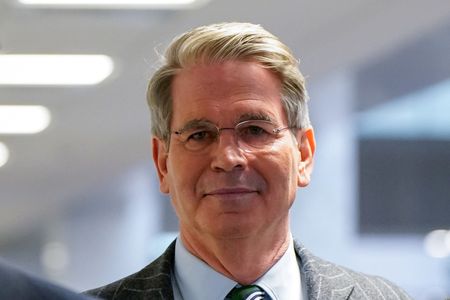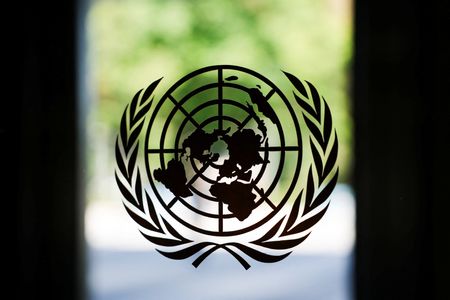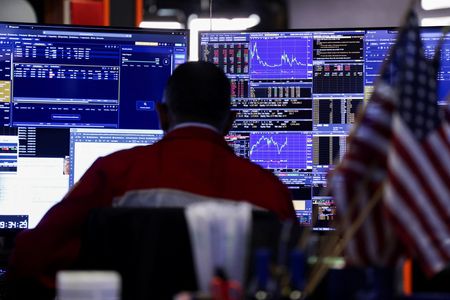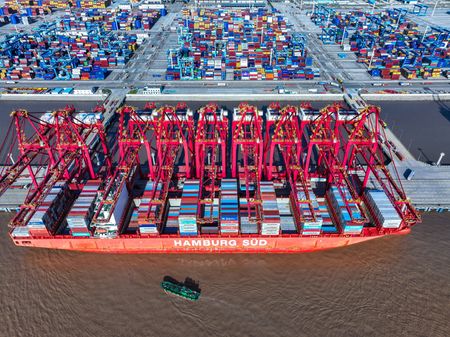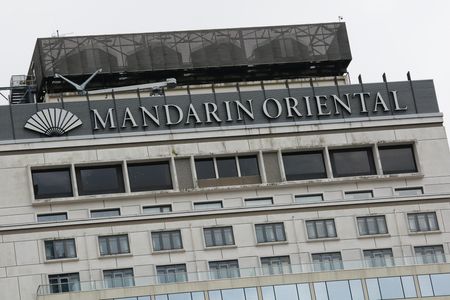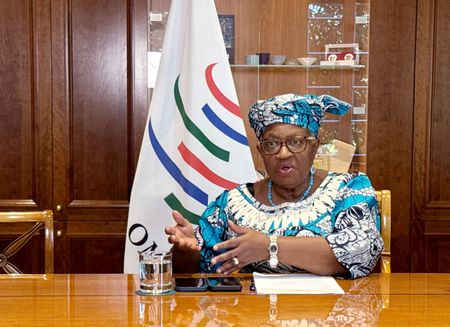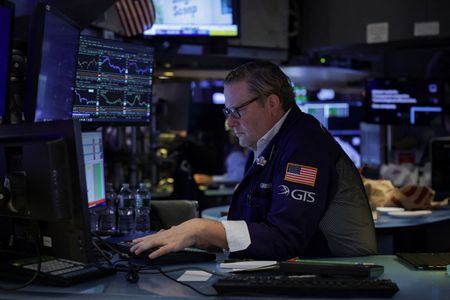By David Lawder and Andrea Shalal
WASHINGTON (Reuters) -U.S. Treasury Secretary Scott Bessent on Friday gave specific marching orders for the International Monetary Fund and World Bank to take tougher stances on China’s state-driven economic practices as part of his push to get the global lenders to refocus on their core missions.
In a statement to the IMF’s steering committee, Bessent said the crisis lender should strengthen its country surveillance activities with “objectivity and evenhandedness.” He also said the World Bank should end its support for China and shift resources to countries with greater needs.
“The IMF should not shy away from asking difficult questions, more clearly highlighting internal and external imbalances, deepening its understanding of how industrial policies in large economies such as China contribute to those imbalances, explaining their potential harmful spillovers, and recommending appropriate corrective actions,” Bessent said in the statement to the International Monetary and Financial Committee.
Successive U.S. administrations, including that of President Donald Trump, have blamed China’s state-led economic practices and export-led growth model for building up excess manufacturing capacity that is flooding the world with cheap goods and contributing to trade imbalances. China argues that its success in sectors such as electric vehicles is due to innovation, not government support.
Bessent’s statement comes as U.S. and Chinese officials are locked in a bitter dispute over China’s new rare earths export restrictions, Trump’s tariffs, and new U.S. port fees for Chinese-built, -owned and -flagged ships that could lead to additional 100% U.S. tariffs on Chinese imports on November 1.
The U.S. Treasury chief, who manages the dominant U.S. shareholdings in the IMF and World Bank, first called in April for the two institutions to focus more scrutiny on China, but his latest statement goes into more detail. He ordered the IMF to embrace stronger surveillance of imbalances including China’s in a forthcoming comprehensive review of its surveillance policies, last updated in 2021.
NO DEBT ‘PIGGY BANK’
Bessent also included veiled references to China in criticizing the IMF for letting “recalcitrant creditors off the hook too easily” in debt restructuring negotiations for debt-burdened developing countries. China, the world’s largest bilateral lender, delayed the debt restructurings of Chad, Zambia and Sri Lanka by initially insisting that multilateral development banks also take losses.
Without naming China directly, Bessent said these situations worsened liquidity and economic stress on debtor countries.
“In these situations, IMF programs cannot be effective if there are creditor countries within the membership that are exacerbating the very liquidity stress that IMF programs seek to address,” Bessent said. “Furthermore, IMF resources must not be considered as a piggy bank to repay creditor countries that made a bad bet but refuse to take the loss.”
The IMF’s strategy chief Ceyla Pazarbasioglu said on Wednesday that the U.S. and China, despite their trade differences, are both continuing to work on developing country debt issues through the Global Sovereign Debt Roundtable.
WORLD BANK CHIDED ON CHINA, ENERGY POLICY
Bessent said the World Bank should increase emphasis on its “graduation” policies to wean countries off its support and make them self-sufficient.
“This must include ending support for China and shifting staff and administrative resources to countries where development needs are most acute,” he said.
The Treasury chief also took aim at China in the World Bank’s project procurement activities, urging the bank to “curb anti-competitive procurement practices by state-owned enterprises” and ban those that “do not operate on a commercial basis.”
In line with the Trump administration’s policies opposing green energy subsidies, Bessent also said the World Bank should eliminate a 2023 pledge to devote 45% of its annual financing to climate-related projects and called for an “all-of-the-above” energy financing approach for gas, oil and coal.
Given China’s stranglehold on supply chains for rare earths and other critical minerals, Bessent also called on the bank to boost financing in the sector.
“We welcome the steps the Bank is taking to devise a critical minerals strategy, and expect it to emphasize investments and technical assistance to promote diversified and resilient supply chains.”
(Reporting by David Lawder and Andrea Shalal; Editing by Paul Simao and Andrea Ricci)

